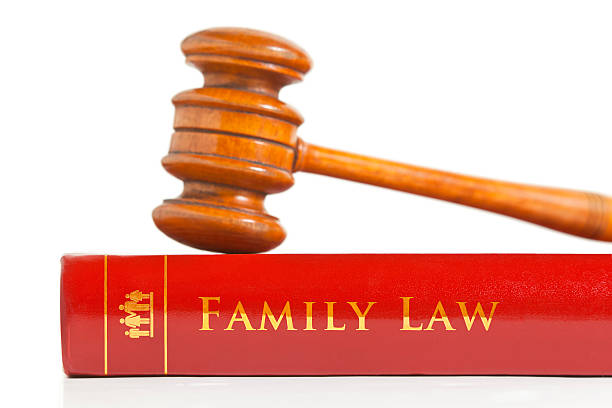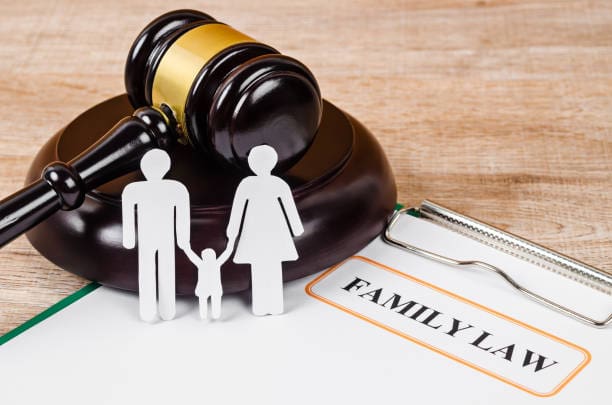What are the different provisions of the community service and bonds Family Law Act 1975? Before we get into the different legislations, let’s first define what are community service and bonds in the Family Law Act. Community service and bonds refer to alternative options for sentencing in cases involving breaches of parenting orders.
- Community service: This involves performing unpaid work for the benefit of the community. Community service may include cleaning up a park or helping out at a charity. The court may order this as an alternative to other forms of punishment, such as fines or imprisonment.
- Bonds: This may involve a promise to comply with the parenting orders in question, under the threat of further legal action or penalties if the parties breach the orders again. A bond may be accompanied by conditions, such as attending parenting classes or counselling.
Both community service and bonds encourage compliance with parenting orders and provide an alternative to more severe forms of punishment. The details and conditions of community service and bonds in family law cases may vary. It depends on the individual circumstances of each case. Read on to know more about the legislation in the community service and bonds Family Law Act.
Click here to read an article we published about Sections 70NFA and 70NFB of the Family Law Act.
Section 70NFC: When Court Is Empowered to Make a Community Service Order
Section 70NFC of the community service and bonds Family Law Act relates to community service orders that courts can make in certain circumstances. A community service order is a legal order that requires a convicted person to perform unpaid work or other community-based activities instead of serving a sentence in prison.
Under paragraph 70NFB(2)(a), a court exercising jurisdiction in a participating State or Territory may make a community service order. However, the court may only do this if the law of that State or Territory empowers the court to do so. The terms “participating State” and “participating Territory” refer to a State or Territory that has entered into an agreement under section 70NFI, which is related to community service orders.
Section 70NFC of the community service and bonds Family Law Act also states that the order must be such that the total number of hours does not exceed the maximum period. This period refers to the maximum number of hours (500 hours) a community service can be imposed on a person. The order ceases to have effect after 2 years or a lesser period specified in the order. The order may be of various kinds which include a/an:
- Community service order;
- Work order;
- Attendance centre order;
- Attendance order;
- Community-based order; or
- Any other similar orders or prescribed for the purposes of
If a court makes a community service order, the laws of that State or Territory with respect to a community service order made under those laws apply to the order to the extent provided by the regulations and are subject to modifications specified in the regulations. Before making a community service order, the court must explain the:
- Purpose and effect of the proposed order
- Consequences of non-compliance; and
- Possibility of revocation or variation of the order.

Section 70NFD: Variation and Discharge of Community Service Orders
Section 70NFD of the community service and bonds Family Law Act describes how a community service order made under paragraph 70NFB(2)(a) can be varied or discharged. What if the court that made the order is either the Federal Circuit or Family Court of Australia (Division 1) and (Division 2)?
If this is the case, then either of those courts can vary or discharge the order. If the court that made the order is any other court, then either the court that made the order or the Federal Circuit and Family Court of Australia can vary or discharge the order.
Section 70NFE: Bonds
According to Section 70NFE of the community service and bonds Family Law Act, there are conditions and requirements that a person must meet to enter into under Section 70NFB(2)(b). A bond is a legal agreement that requires a person to comply with certain conditions for a specified period of up to 2 years. The bond can be made:
- With or without surety (a guarantee from someone else); and
- With or without security (collateral, like property or money, that the court can seize if the person fails to comply with the conditions of the bond).
Section 70NFE of the community service and bonds Family Law Act provides conditions that may be imposed on a person by a bond. This may include:
- Attending appointments with a family consultant
- Attending family counselling and family dispute resolution
- Requiring the person to be of good behaviour
The court must consider seeking the advice of a family consultant about the services appropriate to the person’s needs before imposing these conditions. If a court proposes to require a person to enter into a bond, they must explain:
- The purpose and effect of the proposed requirement to the person in language likely to be readily understood by the person
- The consequences that may follow if the person fails to enter into the bond or fails to act in accordance with the bond after entering into it.
Section 70NFF: Enforcing Community Service Orders or Bonds
Section 70NFF of the community service and bonds Family Law Act explains the consequences of failing to comply with a community service order or a bond entered into under section 70NFE. What if the court is satisfied that the person has failed to comply without a reasonable excuse? If this is the case, the court may take action by imposing a fine on the person or revoking the community service order or bond.
If the court revokes the order or bond, it can deal with the person in any manner it would have if the person was before the court under section 70NFB in respect of the contravention. In dealing with the person, the court must take into account any:
- Previous actions taken under the community service order or bond;
- Fine imposed; and
- Other orders made for or in respect of the contravention.
Division 14: Miscellaneous
Division 14: Miscellaneous under Part VII of the Family Law Act (1975) consists of two Sections. These include:
Section 70P only provides an introduction to Division 14: Miscellaneous. It states what this Division does. Section 70P states that this Division deals with miscellaneous matters relating to children.
Section 70Q: Certain Instruments Not Liable to Duty
This Section states provides a list of instruments that are exempt from any duty or fee as per the laws of a State, Territory, or the Commonwealth that solely pertains to a Territory.
The list of instrument is as follows:
- an instrument executed under, or for the purpose of, an order made under this Part;
- an eligible parenting plan that confers a benefit in relation to a child, to the extent to which it confers the benefit;
- an instrument executed under, or for the purposes of, an eligible parenting plan and that confers a benefit in relation to a child, to the extent to which it confers the benefit.
According to Subsection (2), an eligible parenting plan is a parenting plan:
- a) that is a registered parenting plan within the meaning of subsection 63C (6); and
- b) that is not a maintenance agree, or it is a maintenance agreement, it relates to a child who is not a child of the marriage to which the maintenance agreement related; and
- that
- is made by the parties to a de facto relationship in connection with the breakdown of that relationship;
- relates to a child whose parents (being parties to the plan) were either never married nor living with each other in a de facto relationship, at the time of the child’s conception
Lastly subsection (3) states that a reference to an instrument that confers a benefit to the child includes a reference to an instrument that confers an entitlement to property in relation to a child even though the instrument also deprives the child or another person of an entitlement to other property in relation to the child.

Importance of Seeking Legal Advice
People who are facing family law matters that involve community service and bonds should seek legal advice from a family lawyer. A family lawyer can help:
- Explain the legal implications of these sections;
- Provide guidance on how to comply with the order or bond; and
- Advise on what steps to take in case of non-compliance.
Legal proceedings can be complex and confusing. Therefore, it’s important to seek the guidance of JB Solicitors to ensure that your rights are protected. We can also help you achieve the best possible outcome in your case. Our team also offers mediation and arbitration for various family law matters.
Contact us today for more information about community service and bonds Family Law Act.
